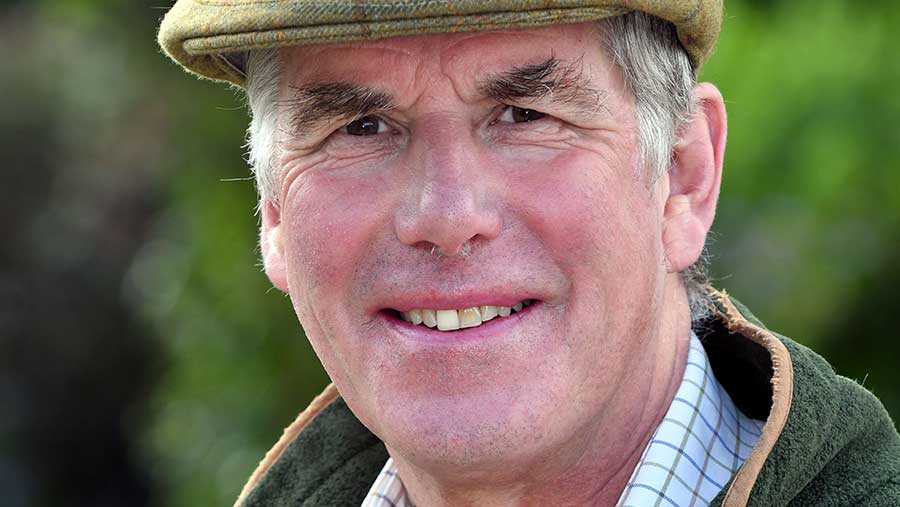CLA president: Lowland farmers face biggest Brexit challenges

Lowland livestock farmers are among those who face the biggest challenges as the UK leaves the European Union, the Country Land and Business Association (CLA) warns.
Newly elected CLA president Tim Breitmeyer issued the warning as he prepares to take over at the helm of the organisation this week.
He will serve as CLA leader in the run-up to Brexit in March 2019 and during the months immediately afterwards.
Speaking to Farmers Weekly, Mr Breitmeyer says: “All farmers face challenges but it is the farmer in the middle I am most concerned about. The lowland livestock farmer in the Midlands and the west of this country, I believe, faces the biggest challenges.”
See also: CLA launches vision for land management contract post Brexit
Lowland family farms frequently lack the economies of scale achieved by larger arable units.
And while Defra secretary Michael Gove has acknowledged that upland farmers need government support, he has made no specific pledge for producers at the foot of the hill.
Mr Breitmeyer says: “It is not only about the assets they may or may not hold and the land that they have. But they are the ones who are most disadvantaged with engagement with the food chain. I think they are for a whole host of reasons the ones who need the greatest assistance.”
Lowland support
Support for lowland farmers should include skills training, suggests Mr Breitmeyer. Bigger farms are able to pay to get the necessary skills and consultancy advice to improve their businesses. But smaller family farms are not always able to do so.
Brexit needs a change of mindset, says Mr Breitmeyer. To a certain extent, lowland farms need to help themselves.
But he adds: “We have to find a way of helping farm businesses with that kind of information – whether it be benchmarking, risk management training or something else.”
The CLA will give all farmers affected every assistance it can by devising deliverable policy proposals. “Some might say it is not for me. That is a personal choice. We have to deliver the possibility for their business to succeed going forward.”
This could include grants to help make farm businesses more efficient and productive, initiatives to encourage knowledge transfer and investment in research and development.
Land management contract
The CLA also wants the government to introduce a post-Brexit land management contract for farmers.
A major CLA policy proposal, the land management contract is an ambitious vision to reform the system of farm support after the UK leaves the EU – replacing direct payments with a new policy framework that rewards farmers for managing land for the benefit of the whole of society.
The CLA argues that such a policy will encourage a new wave of public and private investment in agriculture. Farmers will be able to select from a range of measures – from improvements in soil quality to enhanced animal welfare and planting trees – and be rewarded for them.
Farmers will be rewarded on the basis of what they contribute, rather than the amount of land they own, says Mr Breitmeyer. It is important to remember food production is at the heart of agriculture but all the signals are that the government doesn’t like direct payments.
“We can’t ignore the fact that Brexit means farming is going to change.”
Introducing Tim Breitmeyer
CLA president Tim Breitmeyer has been an active member of the association for more than a decade.
He chaired the CLA Cambridgeshire branch committee for two years and has also chaired the CLA’s national agriculture and land-use committee and environment committee.
Mr Breitmeyer farms 650ha (1,606 acres) in Cambridgeshire, growing wheat, spring barley, oilseed rape and sugar beet, as well as contract farming a further 1300ha.
The business runs a sugar beet harvesting and delivery operation, rents out 5,500 square foot of office space and has a private shoot.
A Grenadier Guard for 18 years, Mr Breitmeyer retired from the army in 1996. He remains a member of Her Majesty’s Honourable Corps of Gentlemen at Arms, providing a ceremonial guard for the Queen on state occasions.
